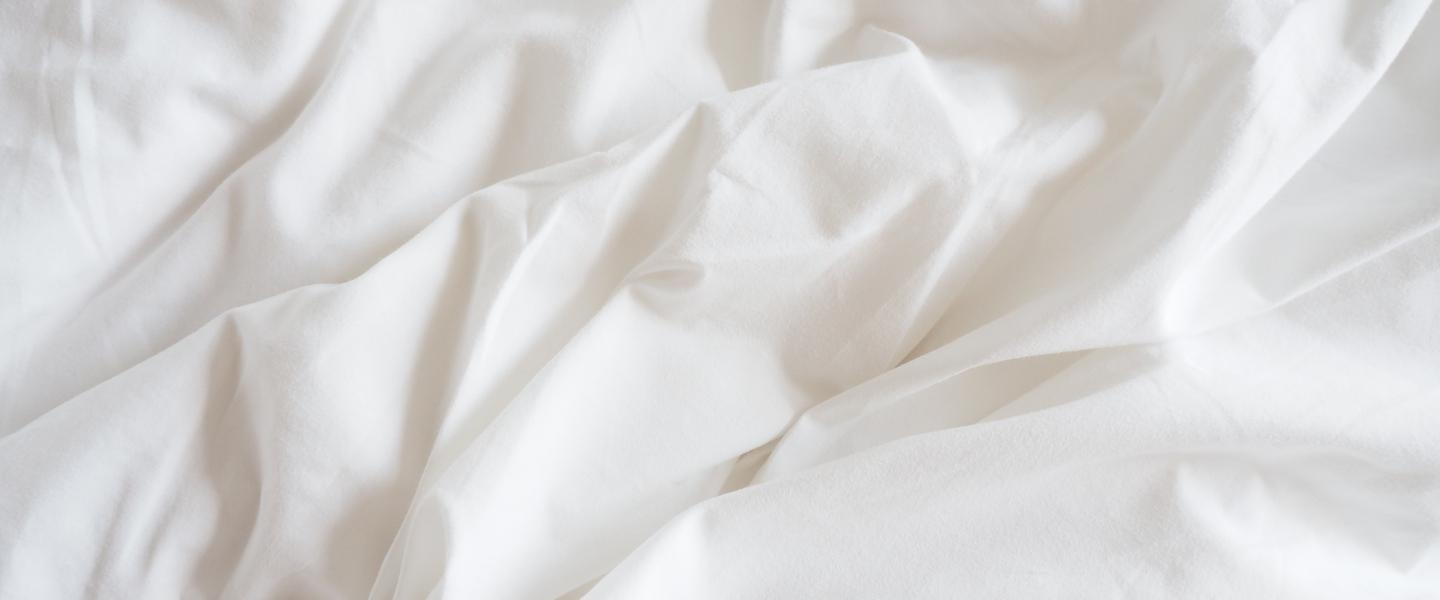How Often Should You Wash Your Bedding?
It’s hard not to find yourself constantly thinking about germs, cleanliness, personal hygiene, and safety. While you’re busy disinfecting your kitchen, bathrooms, and communal living spaces, you might be shocked to learn just how much filth and bacteria your bed could be collecting.
A survey of UK citizens covered by Healthy Magazine found that 52% of people are aware they should be changing their bedding often, but over 70% don’t follow those guidelines. According to the survey, the regions of the UK that change their bedding the least often are Northern Ireland, Yorkshire and The Humber.
You should clean all of your bedding often to ensure it is clean. Read our guide to find out how often you need to wash your duvets, pillows and mattress protectors.
Why is it important to wash your bedding?
Whether you realise it or not, our bedding needs cleaning regularly. More than two-thirds of people are unaware that dirty bedding might lead to:
- Illness
- Infection
- Allergic reactions
- Rhinitis
Only 29% of UK citizens surveyed reported they shower before they go to bed at night, and a quarter of the participants answered that they slept naked. 57% of them responded that they often eat in bed and leave crumbs and food particles behind. Three-fifths of respondents reported they allow their pets to sleep in bed with them.
All of these things are a part of everyday life, but they also contribute to making your bed a dirty, unhealthy place unless you diligently clean your bedding to keep the dirt and germs at bay.
Why you should wash your sheets and bedding weekly
Washing your sheets and bedding is essential to your health and safety. So that begs the question: just how often should you wash your bedding?
One of the reasons bedding gets dirty so quickly is because we shed 15 million skin cells every night. Those skin cells help to make a perfect habitat for bacteria to multiply fast.
A recent research study carried out by Amerisleep compared the number of bacteria found on your bed versus other everyday household objects. Volunteers who participated in the study used a cotton swab to test their beds four weeks in a row.
- After only one week - The bedsheets were home to more bacteria than a bathroom doorknob. Pillowcases will also collect 17,000 times more bacteria than a toilet seat.
- By two weeks - The bedding hosted even more bacteria than a pet toy.
- After one month - Pillowcases that are not washed for four weeks can contain 39 times more bacteria than a pet’s food bowl.
What about other bedding?
Your pillows, duvet and pillow protectors need regularly cleaning just as you would clean your covers and sheets. However, not everybody cleans the area they sleep in as often as they should.
Around 37% of people admit to never cleaning their mattresses, while another 30% never clean their pillows. On top of this, a quarter of survey participants admit they do not replace their pillows after 3 years, and a fifth claimed they do not change their duvets either.
In fact, 22% of the respondents indicate they did not buy new mattresses after 8 years and a tenth even admitted they had never replaced their mattress at all.
For all of these people, these findings from The Sleep Council might prove very disturbing indeed. They found that a tenth of the weight of a pillow never washed comes from dust mites and their faecal matter, mould, and dead skin.
The Sleep Council also showed that mattresses 7 years or older tested positive for several types of bacteria, including bacilli and gram-positive cocci, some of which can cause stomach poisoning.
Mattresses
First and foremost, be sure to try and replace your mattress if it is more than 7 or 8 years old. If your mattress is not that old yet, or you cannot get a new mattress at the moment, be sure you regularly air out your mattress. You’ll want to ensure that you do so every six months.
Where possible, take the mattress outside for a thorough airing out. You should also clean the base of the mattresses with a soft-bristled brush or even a vacuum.
Duvets
While duvets may not come in contact with as much dirt and grime as other bedding, they can still get just as filthy. A duvet that has not been washed for a year can contain over 20,000 dust mites which can irritate your eyes and skin.
If you have asthma or allergies, dust mites can increase symptoms and the discomfort associated with them. To avoid sleeping under a soiled duvet, be sure to wash your duvet regularly.
Be sure you have a large capacity washing machine and dryer if you want to wash thicker, heavier duvets. If your machine has smaller than a 9kg drum, a launderette might be a better option. You could even try to wash a duvet in a bath!
If you plan on storing your duvet after washing it, read our guide to the best ways to store your duvet.
Pillows
You should wash your pillowcases every week alongside the rest of your bedding. While pillowcases help to protect the pillow somewhat, the pillow still needs washing from time to time as well.
You don’t have to wash your pillows every week, but you should be washing pillows once every 3 months or so. Make sure that you follow the care instructions provided by the manufacturer.
You can also spot clean your pillow if necessary in the case of spills or accidents. Remember, you should never wash memory foam pillows in a washing machine. If the pillow has a removable cover, wash the cover instead of the pillow.
It’s recommended you change your pillow every 1 to 2 years, as the build-up of dirt and grime is inevitable.
Mattress protectors and toppers
Many people use a mattress topper or mattress protector to keep their mattresses safe from spills, dust, and dirt. For them to remain effective, you should wash them regularly.
You don’t have to wash the protector or topper every week, but you should clean them every 3 months alongside your pillows. As with the pillows, be sure to follow the manufacturer’s instructions.
If the instructions indicate it cannot be machine washed, the next best option is to hand wash and spot clean the surface of your topper or protector. Never use harsh chemicals to wash them, as they can damage the material.
Tips for keeping your bed clean
Aside from cleaning your bedding, mattress, duvets, and pillows, there are some other things you can do to help keep your bed clean:
- Keep your bedroom well ventilated with as much fresh air as possible
- Wash your pyjamas every few days and never sleep in dirty pyjamas
- Dust your bedroom before you strip off your bedding
- Remove your shoes before you go into your bedroom to avoid tracking dirt inside
- Dust and clean your bed frame and headboard at least once a week
- Vacuum upholstered headboards with an upholstery attachment
- Use a dehumidifier to get rid of unwanted moisture
- Though it might be hard, keeping animals off your bed will keep them much cleaner.
- Try not to eat or drink in your bed as much as possible
Whatever you do, make sure that you don’t inadvertently expose yourself to harmful bacteria in your own bed. To assure your health and safety, along with your family, make sure you regularly wash your bedding. For your sheets, pillowcases, and duvet covers, you should wash these every week. Pillows, mattress covers and toppers need washing every 3 months. Finally, your mattress should be cleaned every 6 months.
We have an excellent range of pet bedding to keep your fluffy friends cosy as they sleep and importantly, off your bed.
If you do need new bedding for your home, you’ll find exactly what you need at Sleepseeker. Whether you need advice on how to choose a duvet, how to put on a duvet cover or how many pillows to sleep with, there’s nothing we can’t help you with.
What's trending now...
-
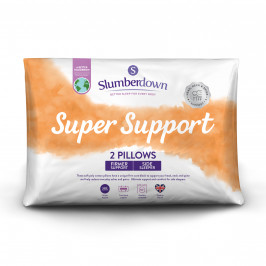
Slumberdown Super Support Firm Support Side Sleeper Pillow, 2 Pack
£17.00
Shop Now -
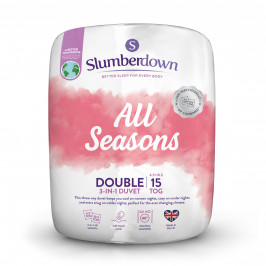
Slumberdown All Seasons Combi 15 Tog (10.5 + 4.5 Tog) Double Duvet
£30.50
Shop Now -

Slumberdown Paws for Slumber Olive Green Pet bed, Medium
£39.00
Shop Now -
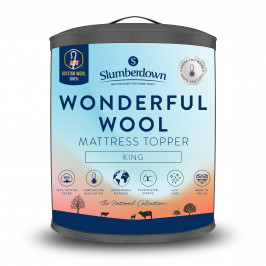
Slumberdown Wonderful Wool Mattress Topper, King
£60.00
Shop Now -
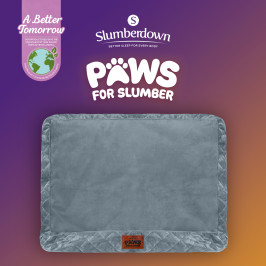
Slumberdown Paws for Slumber Extra Large Pet Bed Spare Cover, Grey
£20.00
Shop Now -
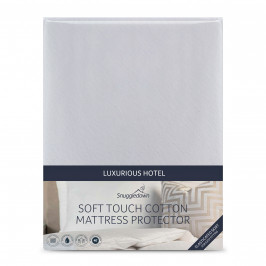
Snuggledown Luxurious Hotel Cotton Waterproof Mattress Protector, Double
£23.50
Shop Now -
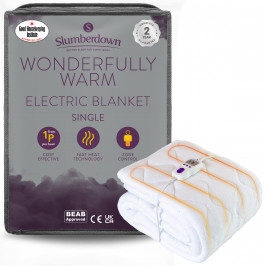
Slumberdown Wonderfully Warm Electric Blanket - Single
£60.00
Shop Now -
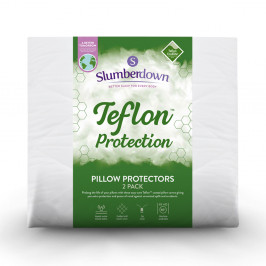
Slumberdown Teflon Pillow Protector - Pack of 2
£14.00
Shop Now -

Slumberdown Unwind Outside 2-in-1 Waterproof Cocoon Set, Burnt Orange
£30.00
Shop Now -

Slumberdown Paws For Slumber Sherpa Pet Bed, Medium
From: £25.00
Shop Now -
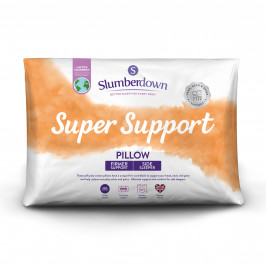
Slumberdown Super Support Firm Support Side Sleeper Pillow
From: £17.00
Shop Now -
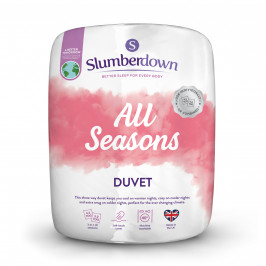
Slumberdown All Seasons Combi Duvet
From: £25.50
Shop Now -

Slumberdown Paws for Slumber Medium Pet Bed
From: £39.00
Shop Now -
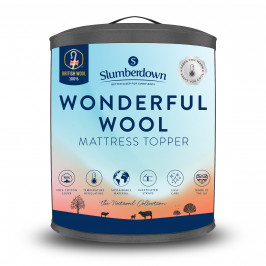
Slumberdown Wonderful Wool Mattress Topper
From: £54.50
Shop Now -

Slumberdown Paws for Slumber Extra Large Pet Bed Spare Cover
From: £20.00
Shop Now -
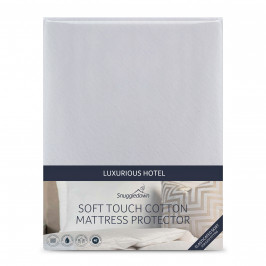
Snuggledown Luxurious Hotel Cotton Waterproof Mattress Protector
From: £19.50
Shop Now -
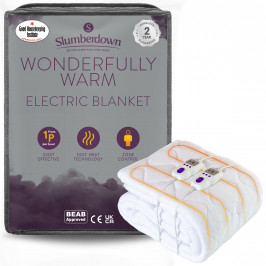
Slumberdown Wonderfully Warm Electric Blanket
From: £60.00
Shop Now -

Slumberdown Unwind Outside 2-in-1 Waterproof Cocoon Set
From: £30.00
Shop Now -
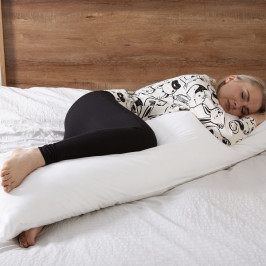
Slumberdown Body Support Pillow, 1 Pack, Includes 100% Cotton Pillow Case
£20.00
Shop Now -
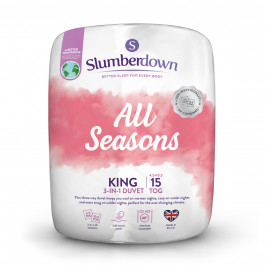
Slumberdown All Seasons Combi 15 Tog (10.5 + 4.5 Tog) King Size Duvet
£34.00
Shop Now -

Slumberdown Paws for Slumber Olive Green Pet Bed, Large
£49.00
Shop Now


